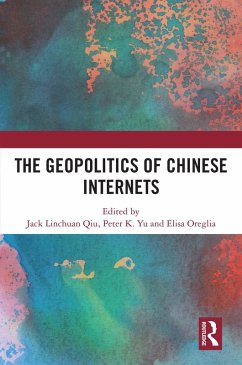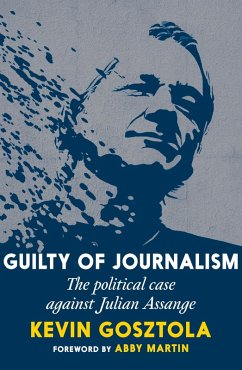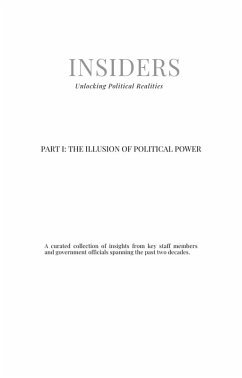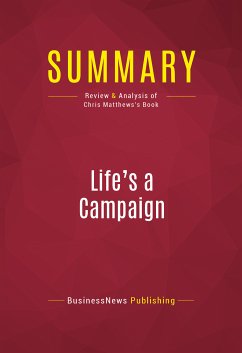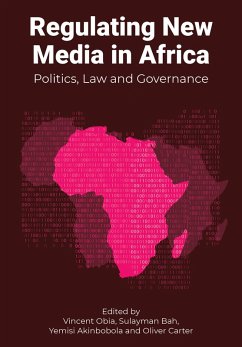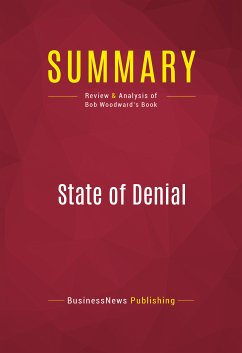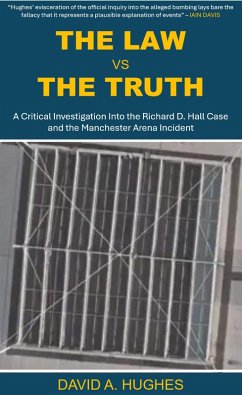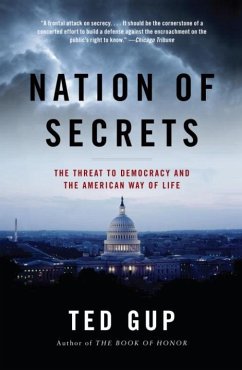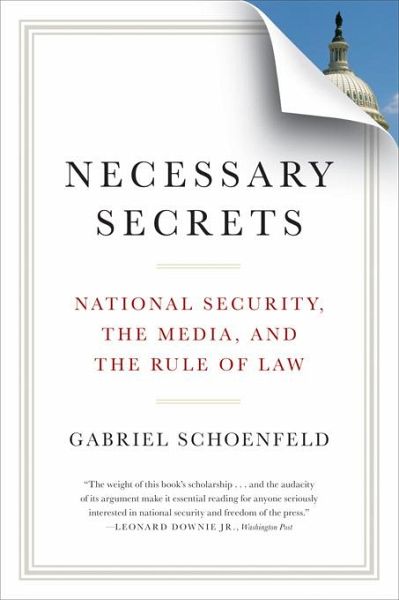
Necessary Secrets (eBook, ePUB)
National Security, the Media, and the Rule of Law

PAYBACK Punkte
4 °P sammeln!
An intensely controversial scrutiny of American democracy's fundamental tension between the competing imperatives of security and openness. Leakingthe unauthorized disclosure to the press of secret informationis a well-established part of the U.S. government's normal functioning. Gabriel Schoenfeld examines history and legal precedent to argue that leaks of highly classified national-security secrets have reached hitherto unthinkable extremes, with dangerous potential for post-9/11 America. He starts with the New York Times' recent decision to reveal the existence of top-secret counterterroris...
An intensely controversial scrutiny of American democracy's fundamental tension between the competing imperatives of security and openness.
Leakingthe unauthorized disclosure to the press of secret informationis a well-established part of the U.S. government's normal functioning. Gabriel Schoenfeld examines history and legal precedent to argue that leaks of highly classified national-security secrets have reached hitherto unthinkable extremes, with dangerous potential for post-9/11 America. He starts with the New York Times' recent decision to reveal the existence of top-secret counterterrorism programs, tipping off al Qaeda operatives to the intelligence methods designed to apprehend them. He then steps back to the Founding Fathers' intense preoccupation with secrecy in the conduct of foreign policy. Shifting to the 20th century, he scrutinizes some of the more extraordinary leaks and their consequences, from the public disclosure of the vulnerability of Japanese diplomatic codes in the years before Pearl Harbor to the publication of the Pentagon Papers in the Nixon era to the systematic exposure of undercover CIA agents by the renegade CIA agent Philip Agee.
Returning to our present dilemmas, Schoenfeld discovers a growing rift between a press that sees itself as the heroic force promoting the public's right to know and a government that needs to safeguard information vital to the effective conduct of national defense. Schoenfeld places the tension between openness and security in the context of a broader debate about freedom of the press and its limits.
With the United States still at war, Necessary Secrets is of burning contemporary interest. But it is much more than a book of the moment. Grappling with one of the most perplexing conundrums of our democratic order, it offers a masterful contribution to the enduring challenge of interpreting the First Amendment.
Leakingthe unauthorized disclosure to the press of secret informationis a well-established part of the U.S. government's normal functioning. Gabriel Schoenfeld examines history and legal precedent to argue that leaks of highly classified national-security secrets have reached hitherto unthinkable extremes, with dangerous potential for post-9/11 America. He starts with the New York Times' recent decision to reveal the existence of top-secret counterterrorism programs, tipping off al Qaeda operatives to the intelligence methods designed to apprehend them. He then steps back to the Founding Fathers' intense preoccupation with secrecy in the conduct of foreign policy. Shifting to the 20th century, he scrutinizes some of the more extraordinary leaks and their consequences, from the public disclosure of the vulnerability of Japanese diplomatic codes in the years before Pearl Harbor to the publication of the Pentagon Papers in the Nixon era to the systematic exposure of undercover CIA agents by the renegade CIA agent Philip Agee.
Returning to our present dilemmas, Schoenfeld discovers a growing rift between a press that sees itself as the heroic force promoting the public's right to know and a government that needs to safeguard information vital to the effective conduct of national defense. Schoenfeld places the tension between openness and security in the context of a broader debate about freedom of the press and its limits.
With the United States still at war, Necessary Secrets is of burning contemporary interest. But it is much more than a book of the moment. Grappling with one of the most perplexing conundrums of our democratic order, it offers a masterful contribution to the enduring challenge of interpreting the First Amendment.
Dieser Download kann aus rechtlichen Gründen nur mit Rechnungsadresse in A, D ausgeliefert werden.




